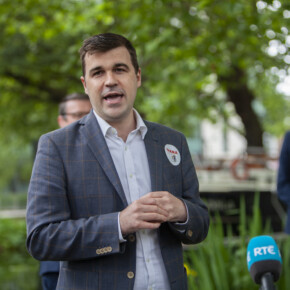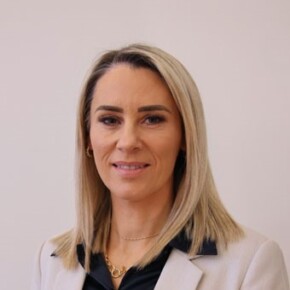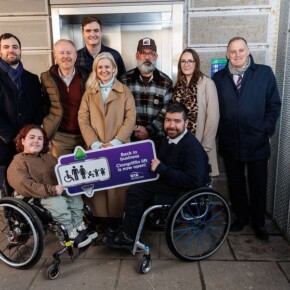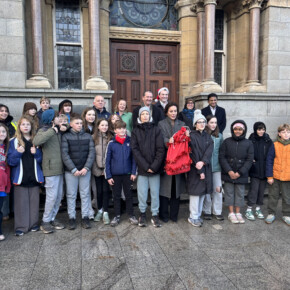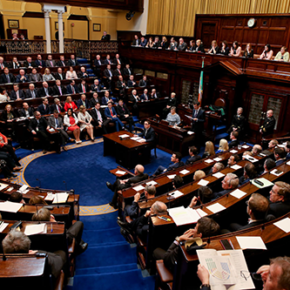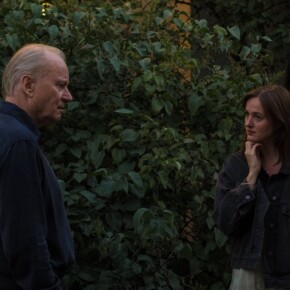‘Not the same party’: Johansson quits PBP over ideological row
Mike Finnerty 18 Jun 2025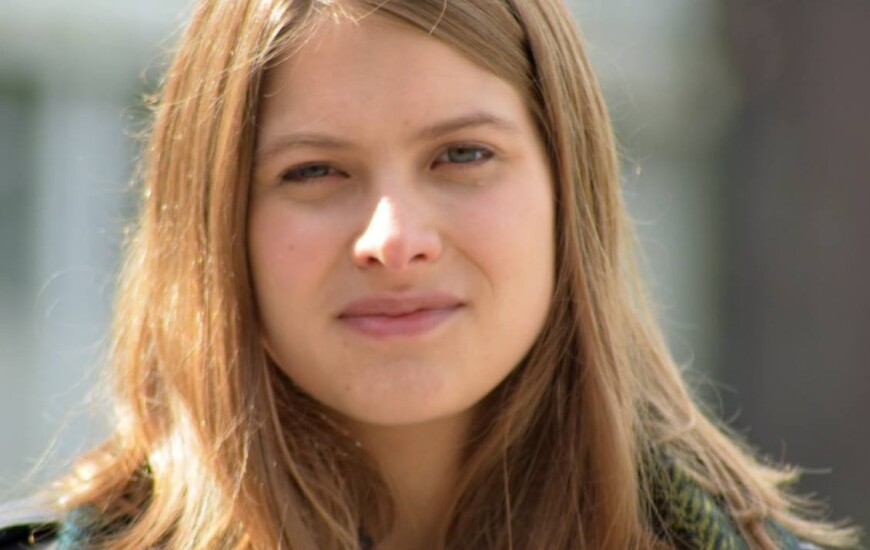
Brendan Behan was once quoted as saying, “the first item on the agenda of any Irish organisation is the split”, and last week, the old saying rang true.
Councillor Madeleine Johansson left People Before Profit last week, along with an internal party faction named the Red Network, over what they perceive to be a rightward shift in the party.
Johansson was co-opted onto South Dublin County Council following the election of Gino Kenny to the Dáil in 2016 and won re-election last year in the Palmerstown-Fonthill constituency.
In a statement, Johansson said, “I have been a member of People Before Profit for almost 20 years and leaving has not been an easy decision to make.”
“However, I feel that the party is not the same as when I joined, and I can no longer ignore the change in political principles.”
Johansson said the party has strayed from its working-class roots in an attempt to win wider electoral appeal, a stance, she believes, runs counter to what People Before Profit should be doing.
“I’m deeply troubled by the party’s increasing readiness to join a left-wing government with Sinn Féin—or at least to tell the public that they will,” she said.
“I argued for a clear stance: supporting a Sinn Féin government from the opposition benches on a case-by-case basis and holding them to account.”
Over the last year, People Before Profit has made attempts to move away from the traditional positions of left-wing political parties.
The party has made efforts to become more of a conventional political party by naming Richard Boyd Barrett as Dáil leader and making him the main face of the party in televised debates, taking part in talks to run Dublin City Council as part of a progressive alliance and were broadly supportive of taking part in a Sinn Féin-led government in the Dáil.
In the run-up to last year’s local and general elections, Murphy formally reached out to Sinn Féin and the Social Democrats about a transfer pact, which went unanswered by both parties.
In last summer’s snap elections in France, a coalition of centre-left, green and far-left parties joined forces to see off Marine Le Pen’s far-right National Rally, becoming the largest force in the French parliament.
Speaking after the results, Murphy said, “we should come together to learn from what happened in France.”
Murphy’s attempts at leftist co-operation were not appreciated by Johannson, or indeed the other members of the Red Network.
In a 3,000-word statement published on the Red Network website, the faction said that People Before Profit has moved away from its initial status as a party which serves the needs of the working class, and has capitulated into what they call “an engagement in student moralism and performative politics.”
“People Before Profit argued at the time that we needed to drop anger and appear more respectable – in order to chase white-collar votes,” they wrote.
To their point, a Red C poll that was carried out in May 2024, just before last year’s local elections, saw the party poll at 5% among the ABC1 (middle-upper class demographic) tied with Labour.
A year later, support is at just 2% in that demographic, but support in the C2DE demographic, their key working-class base, has increased from 2% to 4% in that same timeframe.
Sinn Féin, conversely, have gone from 27% to 30% in the C2DE demographic, indicating the party is starting to put the squeeze on People Before Profit again, just like what happened in the run-up and aftermath of the 2020 general election.
2024’s general election was a mixed bag for People Before Profit; the party saw an increase in actual vote share, but lost two of their five TDs.
Despite Dublin Mid-West being expanded to five seats, which theoretically should have benefited a smaller party like People Before Profit, Gino Kenny lost the Dáil seat he had held since 2016.
Sinn Féin transfers, which were so crucial to his re-election in 2020, failed to get him over the line this time.
2020’s general election saw TDs Eoin Ó Broin and Mark Ward elected on counts one and two respectively, and their surplus gave Kenny a major boost.
That didn’t happen last November; Ó Broin was still elected on the first count, but Ward had to wait until count nine, when Kenny was eliminated, to get elected.
Johansson’s consistency of Palmerstown-Fonthill saw far-right, anti-immigrant party the Irish Freedom Party, get their first councillor elected in the form of Glen Moore last June (and indeed, Moore received just under 2,000 preferences in last November’s general election, before quitting the party earlier this year) which further cut into the working-class base that is so crucial to People Before Profit.
Last June saw four far-right or explicitly anti-immigrant candidates win seats in Dublin in working-class constituencies.
Independents Gavin Pepper and Malachy Steenson won seats in Ballymun-Finglas and North Inner City, respectively, while Patrick Quinlan won a seat for the National Party in Blanchardstown-Mulhuddart.
Moore was the only successful Southside candidate and left the party this year after a row with party leadership.
Kenny losing the seat in one of their core constituencies reveals what Johansson believes to be part of the problem; more traditional working-class voters are going towards the far-right or back to Sinn Féin, progressive, middle-class voters were bolting for the likes of the Social Democrats and back to Labour.
“Those of us who went on to form the Red Network argued that failing to articulate the deep anger people felt in the estates would leave an opening for the far-right to misdirect that anger,” they said in their statement.
“We knew the strategy was wrong because most activists who would form the Red Network were workers or from working-class estates; we knew where our people were at.”
Johannson criticised what she called “frequent, short-sighted tactical shifts—tailing popular movements on the latest issue, rather than maintaining sustained class-based organising in estates and workplaces.”
“I look forward to continuing the fight for a genuinely working-class, revolutionary socialist movement,” she said, and will sit on South Dublin County Council as an independent.


